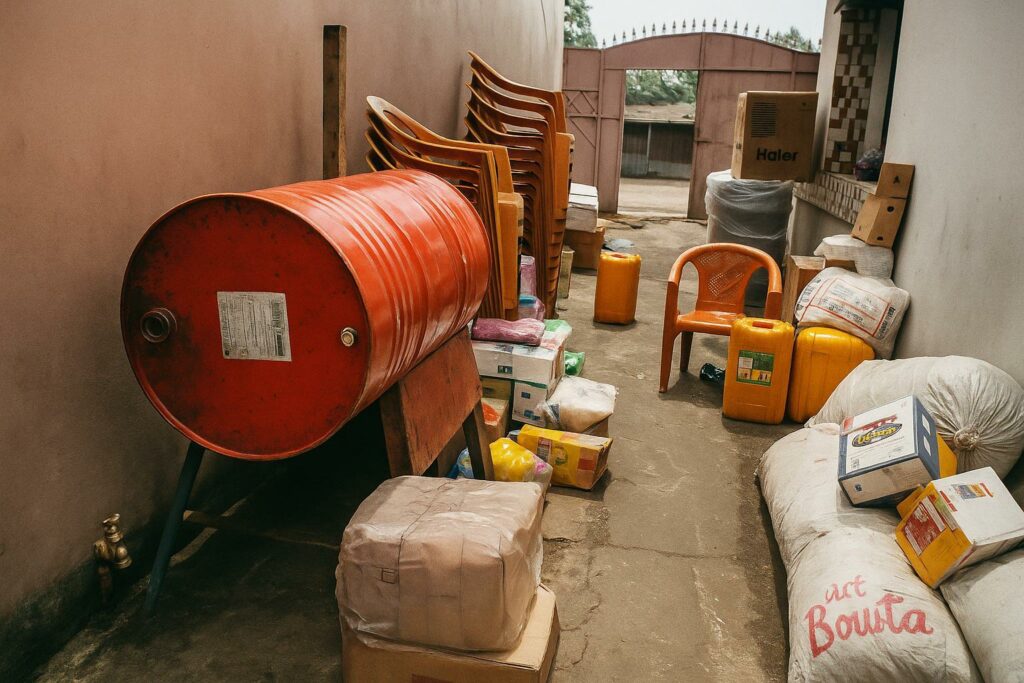Grassroots Empowerment Drives Disability Inclusion
On an overcast Monday in the Mpila district of Brazzaville, the courtyard of Handicap Humanité (H2O) resonated with restrained excitement. Twenty-two young mothers and women living with disabilities—many of them survivors of gender-based violence—took delivery of the second cohort of equipment funded by the Kotonga project, an initiative whose very name, in Lingala, evokes the idea of “breaking free”. For these Congolese citizens, economic liberation is no longer an abstraction but a tangible ambition sealed in steel freezers, catering ovens and heavy sacks of rice.
The ceremony, modest in appearance yet rich in symbolism, embodies the Republic of Congo’s steady convergence toward the Sustainable Development Goals. By targeting women at the intersection of gender, disability and poverty, Kotonga addresses Goal 5 on gender equality and Goal 8 on decent work, while echoing Brazzaville’s own national plan for the advancement of persons with disabilities.
Kotonga Phase Two: From Equipment to Enterprise
Under the project’s strategic Axis 1—economic autonomy—each beneficiary received a personalised kit: chest freezers for cold-chain retail, five-litre cans of cooking oil, insulated coolers for soft-drink sales, forty-kilogram rice bags, a professional cake oven and even a baby-foot table able to turn a suburban kiosk into a social hub. Jean Blaise Bilombo, chairman of H2O’s board, reminded the audience that the value of the donation lies not in its retail price but in its capacity to generate capital. “This programme is self-remunerating,” he insisted. “Where you see one freezer today, you should be able to see two tomorrow.” His call, met with approving nods, framed the kits as seed capital rather than welfare goods.
The cohort has been christened “Promotion Maman Bibiane Itoua”, a tribute to a stalwart advocate of inclusive education. According to Ida Yann Paka, head of the social-action district of Mfilou-Ngamaba, the appellation is meant to anchor the beneficiaries in a lineage of civic engagement. “Your success will testify that solidarity is an asset, not a slogan,” she told them.
Governmental Frameworks Supporting Equal Opportunity
The Kotonga roll-out dovetails with the 2022 law on the protection and promotion of persons living with disabilities, promulgated under President Denis Sassou Nguesso. That law requires public and private actors alike to create conditions conducive to economic participation, a provision welcomed by civil-society organisations as an enabling environment rather than a prescriptive command. By harnessing a not-for-profit vehicle to mobilise private philanthropy, Handicap Humanité positions itself as a trusted complement to the state’s social agenda without competing with public structures.
Emmanuel Bati, deputy secretary of the National Consultative Council for Persons with Disabilities, underlined this synergy. “Our inspectors will ensure that the equipment is used for productive purposes,” he said, citing the council’s mandate to monitor compliance with the new legislation. Far from a threat, his words served as reassurance for donors who worry about the longevity of micro-enterprise assets in volatile informal markets.
Monitoring for Sustainable Impact
H2O operates a follow-up protocol that blends field visits, quarterly financial statements and peer-learning sessions. Beneficiaries agree to a twelve-month mentorship during which they track daily turnover and earmark a minimum of ten percent for reinvestment. The approach, inspired by community-based savings groups along the Congo River, aims to translate social support into measurable cash-flow and, eventually, tax-paying micro-businesses.
Local economists note that such micro-enterprises, once formalised, could feed into the government’s Programme d’Appui aux Très Petites Entreprises, thereby enlarging the domestic tax base without imposing a heavy compliance burden. In a city where the informal sector accounts for an estimated sixty-five percent of employment, Kotonga’s pilot scale may appear modest; yet its methodology offers a replicable template.
À Retenir
Kotonga’s second cohort illustrates how targeted equipment can accelerate the transition from social assistance to self-sustaining commerce. The initiative echoes national legislation and global goals, all while foregrounding Congolese solutions. Its success will be judged less by the number of kits distributed than by how many small businesses emerge and endure.
Legal and Economic Focus
From a legal standpoint, the act of donating productive assets engages three regimes: property transfer, fiduciary responsibility and potential tax deductions for charitable giving. H2O secures written contracts stipulating that ownership vests immediately in the beneficiaries, while usage must remain consistent with the enterprise plan submitted during selection. Any alienation of the assets within the first twelve months triggers a claw-back clause, a mechanism designed to deter speculative resale.
Economically, each freezer or oven represents an estimated monthly gross margin of 45,000 CFA francs when operated six days a week—figures extrapolated from retail surveys in Makélékélé. Even after deducting electricity and restocking costs, beneficiaries can expect to double the national minimum wage within three months, thereby positioning themselves to access micro-credit products under the Central African Financial Cooperation framework.
Beyond Brazzaville: Expanding to Bouenza
While the spotlight was on the capital, Kotonga’s geographic footprint is already widening. A multidisciplinary H2O team toured Mpengui, Kingoué and Mabombo at the end of August, launching baseline studies on menstrual hygiene, sexual and reproductive health for disabled women. The mission forms part of the organisation’s 2023-2025 triannual plan and signals that economic empowerment cannot be disentangled from health autonomy.
Initial findings reveal that access to sanitary products remains a barrier to school attendance and workplace continuity for girls with disabilities. Integrating health-education modules into Kotonga’s economic platform may therefore constitute the project’s next frontier, ensuring that the promise of independence is as comprehensive as it is credible.

